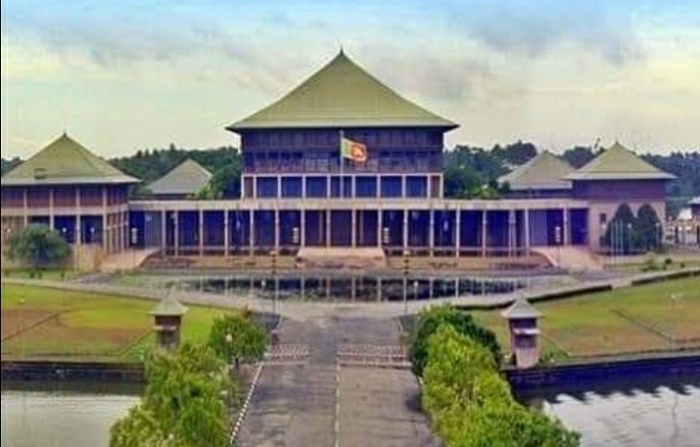
Samagi Jana Balawegaya (SJB) Parliamentarian Eran Wickramaratne presented a Private Member’s Bill to Parliament today (July 18) to amend the Special Commodity Levy (SCL) Act No. 48 of 2007.
According to MP Wickramaratne, under the current SCL legislation, the finance minister has complete discretion to change the tax and simply announce it through a gazette notification. The tax change comes into effect immediately on the Minister’s signature and is brought for parliamentary approval only much later.
But Article 148 of Sri Lanka’s constitution grants control over public finances to the Parliament. The Special Commodity Levy Act, as currently enacted, violates this constitutionally protected mandate of parliament, and instead provides sweeping discretionary powers to the minister to not only change the tax rate, but also to provide tax exemptions.
Even if an action taken by the Minister under this act later fails to gain the approval of Parliament, the implementation of those actions prior to it coming to parliament cannot be reversed, but only discontinued. This leaves an extraordinary amount of power in the minister’s hands and leaves room for the tax system to be abused in favour of vested interests and for huge losses to be caused to government revenue – which must then be made up through other taxes.
The amendment presented by MP Wickramaratne today seeks to establish parliamentary control over any changes to the SCL and prevent the Minister from abusing statutory powers, including by granting benefits to a chosen few, he explained.
“I am presenting a private member’s bill to amend the Special Commodity Levy Act No. 48 of 2007 as the people of Sri Lanka are calling for more accountability and transparency with regard to public finances in the country. This amendment is to promote fiscal accountability and ensure that decisions on taxation are transparent and are discussed in the public domain,” Wickramaratne said in Parliament today.
The MP pointed out that the notorious ‘sugar scam’ of 2020 also originated from these discretionary powers of the minister. Prior to October 2020, sugar was taxed at LKR 50 per kilogram, but then was drastically reduced to 25 cents per kg. An analysis published on PublicFinance.lk shows that the benefit of the tax reduction went mostly to the importer and not the consumer.
According to the National Audit Office of Sri Lanka, between October 2020 and February 2021, the government lost LKR 16 billion in potential tax revenue. If that analysis is extended to December 2022, the government has lost about LKR 59 billion in revenue due to the reduction of SCL on sugar imports.
The government in 2022 attempted to introduce a new tax through the Special Goods and Services Tax (GST) Bill, which gave the minister similar powers to that which presently exists in the VAT and SCL framework. However, the Supreme Court, in very strong terms, held the Bill to be unconstitutional and that it violated the sovereignty of the People.
The Court held: “Thus, by empowering the Minister in the manner provided in clauses 2 and 3, the Parliament distinctively and manifestly loses control over public finance and unconstitutionally alienates such power to the Minister. In the circumstances, this Court holds that clauses 2, 3 and 4 individually and collectively amount to an infringement of Article 148 of the Constitution read with Article 76, and by virtue of such infringement violates Article 4 read with Article 3 of the Constitution.”
The amendment proposed by MP Eran Wickramaratne will bring the relevant portion of the SCL laws in conformity with the constitutional framework, as recognised by the Supreme Court in the Special GST Bill Determination. (NewsWire)
